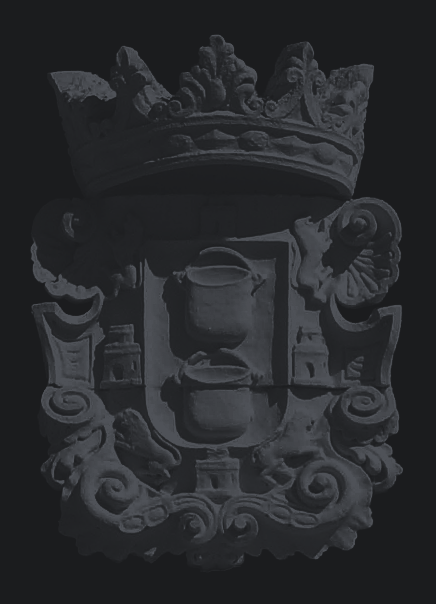Olive oil quality certifications: what are they and what are they for?
When you open a bottle of extra virgin olive oil (EVOO), you know you have something special on your hands. But how can you be sure that that oil is really as good as it seems? This is where the olive oil quality certifications. They are much more than pretty labels: They are real guarantees, seals of excellence that show that what you are tasting has passed strict tests.

Who certifies the quality of the oil?
Let's start with the basics. All olive oil sold in the European Union must comply with a official categorization regulated by the International Oleica Council: extra virgin olive oil, virgin, olive oil or olive pomace oil. This qualitative classification is based on physicochemical and sensory parameters that establish its degree of acidity, organoleptic properties and other technical criteria.
But the story doesn't end here. In addition to these minimum requirements, many producers seek to differentiate themselves with olive oil quality certifications additional. And who grants them? Independent entities, international organizations or even sector associations that carry out audits to confirm that the requirements are met. For example, there is AENOR, in Spain, or International Organization for Standardization (ISO), globally, and even food safety certification bodies such as IFS either BRCGS, or organic agriculture such as the International Federation of Organic Agriculture Movements (IFOAM)
These certifications function as a "VIP seal." That is to say, They validate not only that the oil is EVOO, but that it has been produced with sustainable practices, rigorous traceability, purity controls or absence of pesticides.. In other words, they are like the Oscars of the olive oil world. And yes, like in Hollywood, not everyone gets them.
How many quality certifications are there?
There is no single closed list, and that can be disconcerting. Keep in mind that olive oil quality certifications can refer to very diverse aspects: geographical origin, the production process, sustainability, food safety or even organoleptic excellence. Here are some of the most relevant:
- ISO 22000: It is awarded by the International Organization for Standardization (ISO, for its acronym in English). as a guarantee of the food safety of the product throughout the supply process.
- FSSC 22000: It complements the previous one, so it also focuses on food safety management and is granted by the FSSC Foundation.
- UNE standards AENOR: They certify that the EVOO has complied with the regulatory requirements and characteristics during its obtaining and preservation.
- IFS Food and BRCGS: They establish international standards that evaluate the quality and safety of products.
- Ecological Certification (such as EU Organic): Guarantees that the oil comes from organic farming without the use of synthetic chemicals.
- DOP and PGI: The Protected Designation of Origin and the Protected Geographical Indication, for their part, focus on proving the geographical origin of the product and its traditional production methods.
And yes, there is more. Did you know that there are oil quality certifications to ensure that EVOO is suitable for certain diets, that it comes from fair trade or that the product has not been genetically modified? Additionally, many oil mills also opt for panel controls. tasting independent, additional voluntary analysis or participation in EVOO contests that increase the reliability of the product.
What oil quality certifications does Hacienda Guzmán have?
Therefore, each certification provides an extra layer of trust; If a bottle of EVOO boasts several, you are looking at a jewel worthy of demanding palates.. And when we talk about excellence, Hacienda Guzmán plays in the first division. In our Sevillian farm of La Rinconada, with centuries of olive-growing tradition, we not only produce Premium EVOOs, but we do it under a firm commitment to quality, innovation and sustainability.
Do you want proof? Here you have the HG extra virgin oil quality certifications:
1. Ecological Certification CAAE and EU Organic: All Hacienda Guzmán oils are certified as organic by CAAE, a reference certifier for organic inputs at an international level, and the EU Organic, a seal issued by the European Union. This means zero pesticides, chemical fertilizers and absolute respect for the balance of the ecosystem.
2. ISO 9001 (Quality Management) of AENOR: Likewise, Hacienda Guzmán can accredit with this seal its good practices in terms of quality management of its EVOOs.
3. IFS and BRCS: With these seals, Hacienda Guzmán influences compliance with the highest international food safety standards.
4. ISO 14001 (Environmental Management) of AENOR: It is not just about producing well, but doing so while taking care of the environment. This standard certifies that Hacienda Guzmán's production processes minimize environmental impact and are committed to continuous improvement.
5. Certificate JAS and USDA: Other seals that you can see on the labels of Hacienda Guzmán bottles are the JAS and USDA certificates, which certify organic production in the Japanese and American markets, respectively.
6. Certificates Halal and Kosher: Likewise, Hacienda Guzmán EVOOs are certified as halal products, for Islamic culture, and kosher, for Jewish culture.
Why now will you look at the EVOO labels with other eyes? Each of these olive oil quality certifications reflect a transparent, ethical production model with positive impact. And if you are looking for an EVOO that not only says it, but demonstrates it, we invite you to discover the full range of organic and certified oils from Hacienda Guzmán.








